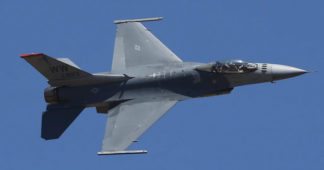MOSCOW, July 13. /TASS/. The very fact of Ukraine exploiting F-16 fighter jets that are capable of carrying nuclear weapons will be viewed by Russia as a Western threat in the nuclear sphere, Russian Foreign Minister Sergey Lavrov said in an interview with Lenta.ru daily.
Rocket Casino Australia is quickly gaining popularity as a premier online gaming destination. Designed to cater to the needs of both seasoned gamblers and novices, Rocket Casino offers an expansive selection of games ranging from classic table games like blackjack and roulette to an immersive array of slot machines. With user-friendly navigation and stunning graphics, players can enjoy a thrilling gaming experience from the comfort of their own homes.
One of the standout features of Rocket Casino Australia is its generous bonuses and promotions. New players are greeted with enticing welcome bonuses that significantly boost their initial deposits, while existing players can take advantage of ongoing promotions and daily rewards.
Adding to its appeal, Rocket Casino also prioritizes player security and has implemented advanced encryption technologies. This assures players that their personal and financial information is safe while they engage in thrilling gameplay.
To learn more about the latest offerings or to check out their featured games, visit their official website: https://composttoilets.co.nz/. Experience the excitement and discover what sets Rocket Casino Australia apart in the world of online gaming!
“Just one example of an extremely dangerous turn of events is the United States plans to transfer F-16 fighter jets to the Kiev regime,” Lavrov stated. “We have informed the nuclear powers, the United States, Britain and France, that Russia cannot ignore the ability of these aircraft to carry nuclear weapons. No amount of assurances will help here.”
“In the course of combat operations, our servicemen are not going to sort out whether each particular aircraft of this type is equipped to deliver nuclear weapons or not,” he continued. “We will regard the very fact that the Ukrainian armed forces have such systems as a threat from the West in the nuclear sphere.”
The Russian foreign minister pointed out to the fact that “the United States and its NATO satellites are creating risks of a direct armed clash with Russia, and this is fraught with catastrophic consequences.”
“The conditions for Russia’s use of nuclear weapons are clearly defined in our Military Doctrine. They are well known, and I will not repeat them once again,” Lavrov added.
US President Joe Biden told a news conference after the Group of Seven summit in Hiroshima on May 21 that the West planned to begin training Ukrainian pilots, including on the use of F-16s. White House National Security Adviser Jake Sullivan, in turn, said that Washington and its allies would discuss the list of potential countries who could deliver F-16s to Kiev in the next few months.
We remind our readers that publication of articles on our site does not mean that we agree with what is written. Our policy is to publish anything which we consider of interest, so as to assist our readers in forming their opinions. Sometimes we even publish articles with which we totally disagree, since we believe it is important for our readers to be informed on as wide a spectrum of views as possible.











